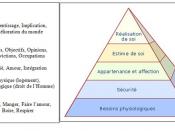When Joe Frazier was heavyweight champion of the world, a journalist asked him, "Why do you box?" Frazier replied, "Because I'm a boxer," and seemed irritated that the interviewer didn't understand. The critic H.L. Mencken said in 1932: "I go on working for the same reason that a hen goes on laying eggs."
Where does this kind of motivation come from? Are people like this trapped by blind instinct or relentless workaholism? Peak performers, supported by their discovery of a place to stand, are doing what they feel best equipped to do and are doing it very well. They know the joy of using themselves to the fullest. Yet, we wonder, what drives these men? What motivates them to steer themselves in the direction they choose? Is it an inborn gift of vitality? Are they blessed with good genes? Do they have an unrelenting will to win? What sets them apart?
Several views suggest that internal motivational drives control the lives of these peak performers.
Atkinson, an expert on internal motivations, describes the two internal motivational drives: the need to achieve (nAch) and the need to avoid failure. When one sees a change that lasts, one can be almost certain that it took root within the individuals it affects, at the level of their own talents and motives. By contrast, many of the quick fixes treat motivation as if it were a fuel one injects into one's system to make one run, and propose solutions that are external to the individual. Peak performers usually claim that external motivators produce the shortest-lived results.
Experts on motivation cite different theories on how it works. McClelland, states three needs theory: need for achievement. (NAch) which is the drive to excel; need for power (nPow), which is the need to make others behave in...


